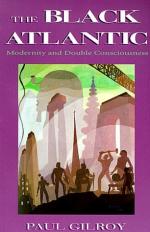
|
| Name: _________________________ | Period: ___________________ |
This test consists of 15 multiple choice questions and 5 short answer questions.
Multiple Choice Questions
1. What is the counterpart to the hermeneutics of memory according to Gilroy?
(a) A hermeneutics of suspicion.
(b) A hermeneutics of liberty.
(c) A hermeneutics of self-reliance.
(d) A hermeneutics of salvation.
2. What do black artists sometimes focus on, to their detriment, according to Gilroy?
(a) Exaggerated masculinity.
(b) Political power.
(c) Money.
(d) Intellectual demonstrations of power.
3. How does Gilroy say slaves used music?
(a) To invoke their racial memories.
(b) To communicate with each other over distances.
(c) To preserve their ancient culture.
(d) To express their pain.
4. What contradiction did Martin Robison Delany NOT embody in his beliefs, according to Gilroy?
(a) Pro- and anti-Africa feelings.
(b) Radical and conservative nationalism.
(c) Nationalist and internationalist beliefs.
(d) Abolitionist and pro-slavery convictions.
5. Under what light does this claim cease to hold up, in Gilroy's opinion?
(a) In light of the West's nationalist movements.
(b) In light of the West's relations with poorer nations.
(c) In light of the discontent of industrial workers.
(d) In light of radical Islam's hostility.
6. How does Gilroy characterize the residual feelings from slavery?
(a) Mysterious.
(b) A source of modern ritual.
(c) Unspeakable but not inexpressible.
(d) Sublime and unfathomable.
7. Where does Gilroy say black intellectuals have gone to get in touch with elements of modern subjectivity?
(a) The ghetto.
(b) The suburbs.
(c) The factory.
(d) The mall.
8. How does Gilroy describe slavery's relation to western civilization?
(a) A shameful secret.
(b) A key part.
(c) A footnote.
(d) An untold story.
9. How does Gilroy characterize postmodernity?
(a) As a radical break of modernity from previous periods.
(b) As the fulfillment of history.
(c) As an apocalyptic prophecy for Western culture.
(d) As the deterioration of historical evolution of culture.
10. What kind of political community does Gilroy say results from black musical society?
(a) Traditional.
(b) Communist.
(c) Socialist.
(d) Democratic.
11. What does Gilroy say master-race intellectuals often do to race?
(a) Essentialize it in opposition to the master race.
(b) Subsume it into working class consciousness.
(c) Reduce it to marketable cultural forms.
(d) Fetishize it.
12. What was Martin Robison Delany vocally critical of, as Gilroy tells it?
(a) The Fugitive Slave Law.
(b) The Liberian movement in American abolitionism.
(c) The abolition movement.
(d) The methods of narrating black history.
13. What literary form does Gilroy say gave blacks access to self-creation?
(a) Drama.
(b) Poetry.
(c) Fiction.
(d) Autobiography.
14. How does Gilroy characterize the modern self?
(a) Holistic.
(b) Temporary.
(c) Fractured.
(d) Contingent.
15. What role has music played in debates of modernity according to Gilroy?
(a) It has defined the counter-culture.
(b) It has been ignored.
(c) It has been dismissed as a popular form of commerce.
(d) It has been central to definitions of modernity.
Short Answer Questions
1. What was Martin Robison Delany searching for?
2. What does Gilroy say is the fact of racial life?
3. How does Gilroy characterize the consciousness of the slave?
4. What criticism does Gilroy make of modern racial and ethnic concepts?
5. What does the notion of the Black Atlantic produce according to Gilroy?
|
This section contains 547 words (approx. 2 pages at 300 words per page) |

|




